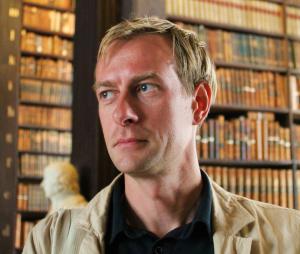The School of the Arts/Department of Communication Studies and Multimedia
Assistant Professor – Contractually Limited Appointment
The School of the Arts and The Department of Communication Studies and Multimedia at McMaster University invite applications for a three-year contractually limited cross-appointment in Studio Art and Multimedia at the rank of Assistant Professor to commence July 1, 2014. In the first year, the successful applicant will teach three one-term courses in the Multimedia program in the Department of Communication Studies and Multimedia and three in the Studio Art program in the School of the Arts. The successful candidate will have an MFA or a PhD and demonstrated excellence in teaching and course development. She or he will be expected to develop at least three one-term courses that would bring together the Studio Art and the Multimedia programs, at a time when both will be developing exciting new physical facilities.
Specific areas of expertise are open but might include any of the following: graphic design,analog and digital photography, painting, drawing, sculpture, installation, performance, art practice as research, research creation, new media and contemporary art theory and criticism, computer-aided fabrication, maker culture, kinetic sculpture,electronic and sensor-based art, video production, editing and post-production, 2D and 3D animation. In years two and three, the successful candidate will teach two one-term courses in Studio Art and two in Multimedia, and the three new cross-listed courses. The current minimum salary for an Assistant Professor is $68,824 per annum. The successful candidate will also be expected to participate in administrative activities.
Applicants should send a letter of application that outlines the candidate’s interest in the position and areas of teaching and research/practice, a curriculum vitae, a statement of teaching philosophy that responds to the profile of the position; a digital portfolio of recent work (on DVD or DVD-ROM, or as a single PDF); an optional writing sample (maximum 25 pages, hardcopy or PDF), to:
Dr. Mary O’Connor, Acting Chair
Department of Communication Studies and Multimedia
Togo Salmon Hall 331
McMaster University
1280 Main Street West
Hamilton, Ontario, L8S 4M2
cmstdir@mcmaster.ca [using subject line title: CLA Multimedia & Studio Art]
Applications received by 31 May 2014 will be assured of full consideration. Applicants should arrange for three letters of reference to reach the Department by the same date. All documentation submitted in support of your application becomes the property of the University and is not returnable unless you provide a stamped, self-addressed envelope.
For further information on the Department of Communication Studies and Multimedia, see http://csmm.mcmaster.ca/ and for The School of the Arts, see http://sota.mcmaster.ca/index.html
See the original job posting here






